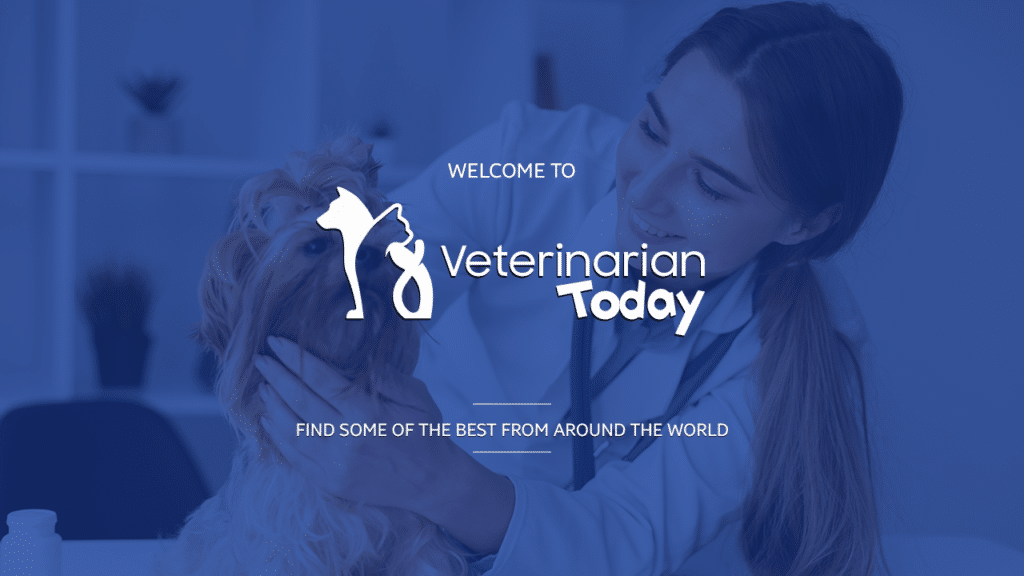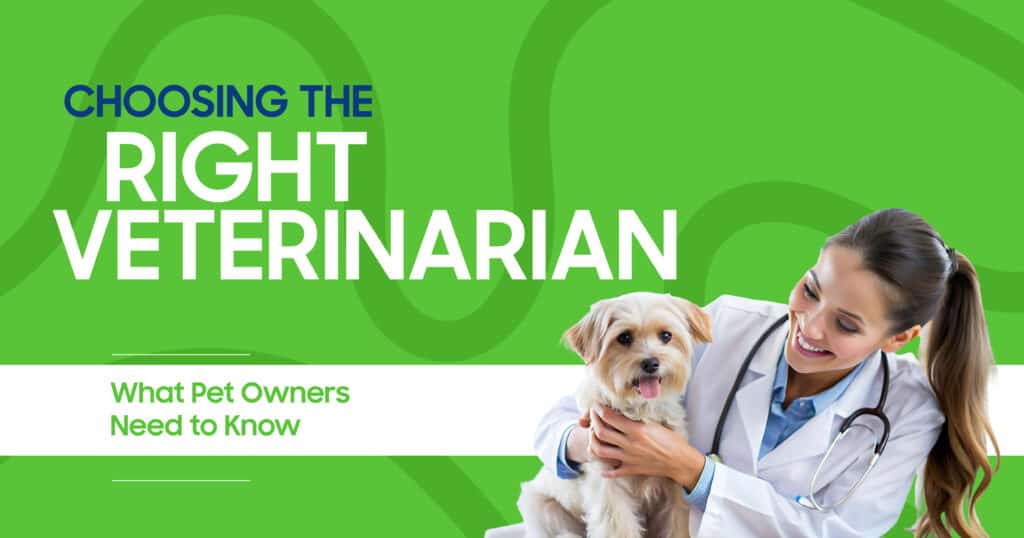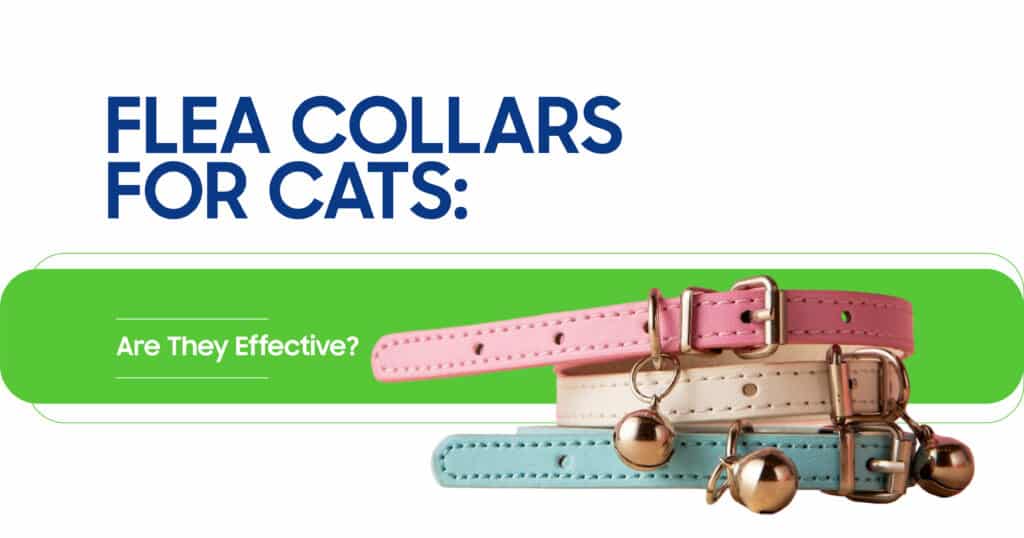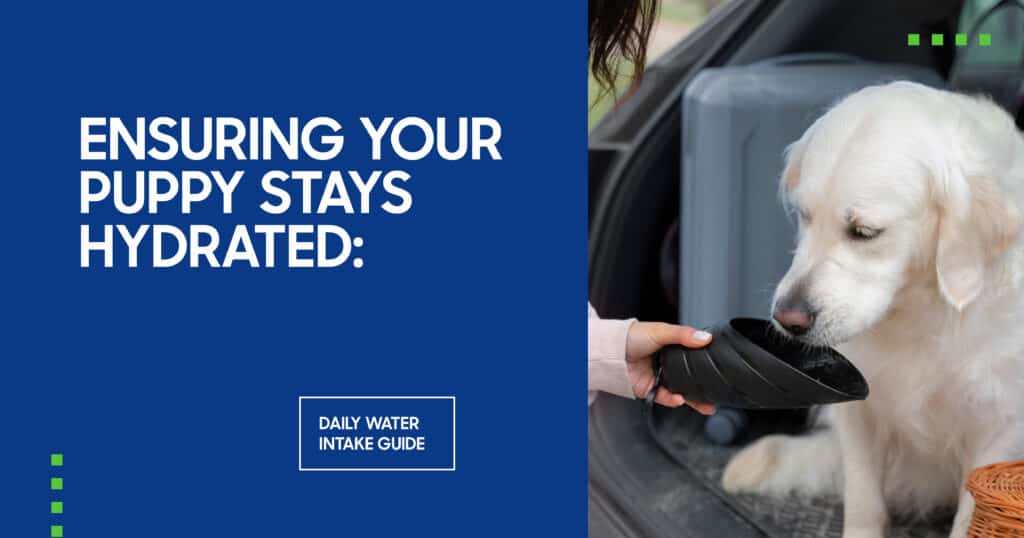Pets bring immense joy, comfort, and companionship to our lives, making pet ownership an enriching experience. With that joy comes the responsibility to give them the best care possible. Selecting the right veterinarian is one of the most crucial choices for your pet’s health and well-being. A good veterinarian does more than just treat illnesses – they’re a trusted partner in your pet’s lifelong wellness journey.
Vet Today partners with you to provide preventive care, emergency support, and guidance at all stages of your pet’s life. A good vet can improve your pet’s quality of life and give you peace of mind, knowing that your pet is in the right professional, caring hands.
Why Choosing the Right Veterinarian Matters
Veterinarians are crucial to the health journey of any pet. They prevent the development of illness not only through vaccination and follow-up check-ups but also by providing special care whenever the animal may need it.
Relationships between pet owners and veterinarians may impact the quality of the pet’s life, so you would like your veterinarian to be someone you feel comfortable approaching to explain anything you notice in detail about your pet’s behavior or habits, especially where their health history is concerned. From puppies and kittens to older pets, you’ll be assured your pet will get the appropriate care to fit into the phase of life it’s currently at.
A good vet relationship also benefits you as a pet owner. You can ask questions and voice your concerns more freely when you have a trusted veterinarian. A vet who understands your preferences and values can recommend treatments and care options that align with your beliefs and lifestyle. It makes the experience smoother and more comfortable, fostering a sense of security that your pet’s health is in good hands.
What to Consider When Choosing a Veterinarian
Choosing a veterinarian involves more than just finding the nearest clinic. A well-rounded assessment considers qualifications, location, facilities at the clinic, services provided, and how the veterinarian handles emergencies.
Qualifications and Experience
When choosing a veterinarian, their qualifications and experience are key factors in ensuring they’ll be a dedicated caregiver for your pet. Veterinarians undergo extensive education and training, and knowing if they have specialized expertise is essential. Some veterinarians focus on specific areas, such as dermatology, cardiology, or surgery, which can be beneficial depending on your pet’s needs.
If your pet has particular health concerns, choosing a vet with experience in that area might be helpful. In addition, you may want to check their credentials, certifications, and education to ensure they are qualified to give your pet the kind of care they need.
Specializations and Areas of Expertise
Although most general veterinarians provide essential services such as vaccinations and regular check-ups on pets’ general health, some veterinarians are specialized. These specializations are helpful if your pet has one or more peculiar health requirements.
For example, a pet with bone or joint problems would find it advisable to seek help from a veterinarian specializing in orthopedics. Specializations include areas of dermatology regarding skin complaints and cardiology regarding issues about the heart
Location and Accessibility
Nearness to the clinic is an essential factor, especially during emergency cases. Having a vet near your house helps you visit easily and often without much stress for you and your pet. Access also includes checking if the clinic offers flexible hours or emergency services, especially for people with busy schedules. You will feel assured knowing you can quickly get care in case of an unexpected illness or emergency.
Facilities and Services of Clinic
When evaluating a clinic, take a moment to observe the environment: is it clean, well-organized, and comfortable? Modern equipment like X-ray and ultrasound machines often reflects a commitment to quality care. A clinic that provides a range of services, such as surgery, dental care, and lab testing, can reduce the need for external referrals, making it easier to access comprehensive care for your pet in one place.
Emergency Services and After-Hours Care
Select a veterinarian who is concerned with emergency care. Ask how the clinic handles emergencies and if they are open after hours. Some will send you to a 24-hour facility close by, while others have in-house care. Knowing how your vet handles emergencies will prepare you for anything that might arise.
Reviews and Recommendations
Online reviews and word of mouth from other fellow pet owners can give great insights into the reputation and trustworthiness of a vet. First-hand accounts will show you aspects such as the vet’s approach, the clinic environment, and even how the staff treats clients. Seek recommendations from friends and family or even local communities where pet owners hang out to share their honest opinions and lead you to a better judgment.
Questions to Ask Your Potential Veterinarian
To get an actual idea of a vet’s approach and whether he is a good fit for your expectations, consider the following key questions to be asked in an initial consultation. This will give them a good idea of their approach to regular check-ups, emergency visits, and pet care philosophy so that you can decide whether they meet expectations.
What Services Are Included in Routine Check-Ups?
Routine check-ups differ between vets, so it would be a good idea to know what the visits include. Some incorporate more of a physical exam, vaccinations, and routine blood work as part of their preventative care. These questions prep you on what might be involved at each visit.
Do You Handle Emergency Situations?
Emergencies are stressful and unpredictable. It is nice to know what your veterinarian will do in an emergency situation, and whether they have extended hours or can give you referrals to nearby clinics that operate 24/7. You might ask if they have any special protocols or alliances with nearby clinics that have after-hours services.
What Is Your Philosophy About Animal Care?
Every veterinarian has their own perspective on the care of animals, from the very old-fashioned to the very holistic. Some veterinarians concentrate more on preventive care and wellness, while others tend to be more treatment-oriented. Knowing your vet’s perspective on animal care will tell you if their perspective suits your expectations, especially when you prefer holistic or alternative treatments.
Do You Provide Any Specialized Services?
Specialized services may include dental care, grooming, and behavior therapy for the needs of your pet. Not all veterinarians can offer these services, so that is a fantastic place to get some questions answered beforehand. Other forms of specialized service may include physical therapy, acupuncture, or dietary consultation, which are especially helpful when your pets are aging or chronic.
Understanding Pet Healthcare Costs
Veterinary care differs in cost from clinic to clinic, the services offered, and the location. Knowing the estimated costs of routine exams and vaccinations, as well as other emergency treatments, will enable one to budget and prepare accordingly for his pet’s care.
Cost of Routine Exams and Vaccinations
Preventive health care includes routine check-ups and inoculations. This will help diagnose any possible problems early and prevent the diseases. Ask your vet what the standard cost would be for these visits and what is all included. This way you know what to expect, and routine care won’t break the bank.
Pet Insurance and Payment Options
The coverage of pet insurance can significantly reduce some of the money spent in veterinary care. In emergencies or chronic situations, pet insurance can be helpful. Ask veterinarians about accepted providers of pet insurance or available payment plans if they do not accept pet insurance. If your choice of insurance is not going to cover you, check if they have flexible payments for major expenses.
Prepare for Emergency Costs
Emergency visits can be costly, but being prepared can help ease the financial burden. Many veterinarians offer payment plans or accept credit options for emergency care. Having a plan in place for unexpected situations can reduce financial stress and ensure your pet receives the care they need.
Maintaining a Long-Term Relationship With Your Veterinarian
Having a lifelong relationship with your vet will improve the health of your pet and give you peace of mind as a pet owner. A trusted vet knows much more about your pet’s medical history, so the vet can easily point out any changes in your pet’s health.
How Regular Visits Benefit Your Pet
Regular visits enable early detection of health issues and allow the veterinarian to monitor your pet’s health over time. An annual check-up, dental exam, and preventive care ensure that any issues detected are treated early on and improve the quality of your pet’s life.
Importance of Communication and Comfort
Open communication with your veterinarian lets you ask questions and express concerns in a comfortable setting. A good vet will prioritize your understanding and comfort, which fosters a partnership that helps them make informed decisions about your pet’s care.
How to Address Concerns and Issues?
Questions should never be left to waste. If you ever happen to have questions or any concern about your pet, just discuss them with the vet. A good vet is always open to clarifying questions and procedures and ensuring that you have adequate trust in the pet care as well as your chosen veterinarian.
Red Flags to Watch Out For When Choosing a Veterinarian
Certain red flags may signal that a vet or clinic isn’t the right choice. Watch for unclear pricing and unprofessional staff, as these can lead to uncertainty and compromise the quality of care your pet receives.
Lack of Transparency in Pricing and Services
Transparency on prices is important. A good veterinarian explains the cost of services accordingly, including any extra fees if applicable. In case the clinic avoids talking overprices or provides ambiguous information, then this raises a red flag.
Poor Hygiene and Unfriendly Staff
The clinic should be clean and reflect a professional attitude of staff. A good clinic is neat and tidy, with staff that are friendly and informed. Poor facilities or unwilling staff may indicate no concern for animals as well as clients.
Unwillingness to Answer Questions or Explain Procedures
The question or explanation-evading unwilling veterinarian is a bad pet owner idea. Pet owners want the security of knowing that their pet is cared for properly. Good vets encourage questions and make an effort to help owners understand the procedure.
Bonus Tips for First-Time Pet Owners
It can be daunting for first-time pet owners to choose a veterinarian. Preparation for the first vet visit and initiation of care will make it less challenging.
Preparation for Your Pet’s First Vet Visit
Before your pet’s first visit, ensure that you collect essential documents that may include any previous medical records and vaccination history. Bringing some familiar items, such as a toy or blanket, will make your pet feel comfortable.
Set Up Health Care Routine
There are vaccinations, dental care, and other preventive measures against parasites. Ensure to create a care schedule with your vet so that your animal will care for its health at whatever age.
Coping With Your Dog’s Anxiety When Going for Check-up at the Vet’s
Some pets are stressed going to the vet. Especially for those pets who are new to the place. This could be made easier by trying to go when there’s less crowding, taking comfort items to help make them feel a little bit better, and having patience with your pet.
Choosing the Right Vet for You and Your Pet
Choosing the right vet is one of the first steps toward your pet’s health and happiness. Making an informed choice takes time and careful consideration of all the factors above. This way, you’ll select a veterinarian who does more than just treat your pet, they’ll also be an advisor and a source of comfort. Look for a trusted partner in your pet’s health, someone who will support you and your pet every step of the way. Let your search for this companion begin today.
Frequently Asked Questions
-
How often should my pet visit the veterinarian?
Most pets need at least an annual check-up, but older pets or pets with chronic health conditions require more frequent visits to the vet. Ask your vet for the best schedule for your pet.
-
What should I bring to my pet’s first vet visit?
Bring any previous medical records, vaccination history, and questions. A familiar item like a blanket can help your pet feel more comfortable in the new environment.
-
Is pet insurance worthwhile to spend on routine care?
Yes, the benefits include routine care and unexpected medical expenses. Review the policies to see if it matches the financial needs of the owner and the health requirements of the pet.
-
How do I know if a veterinarian is qualified?
Check out the veterinary’s credentials, including certification and educational background. Many clinics post this information online or on their office bulletin boards, and professional vet associations can provide verification.
-
What should I do in a veterinary emergency?
In a veterinary emergency, you should call your veterinarian or an emergency clinic right away. It helps to know beforehand where the nearest emergency clinic is, especially if your regular vet doesn’t work after hours.






